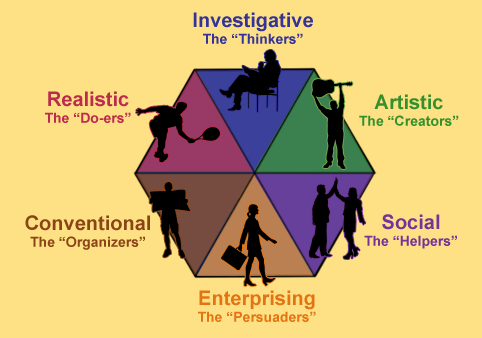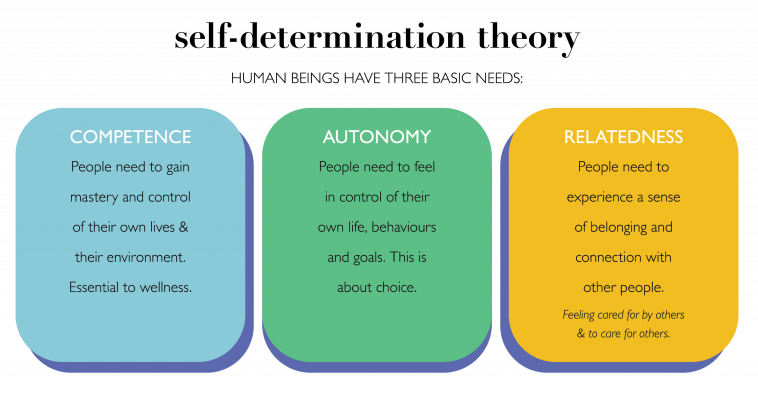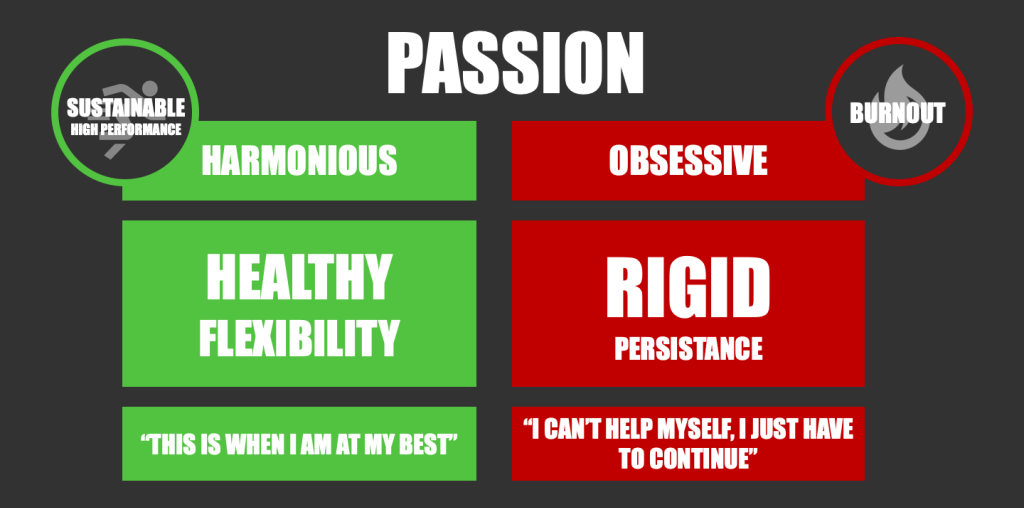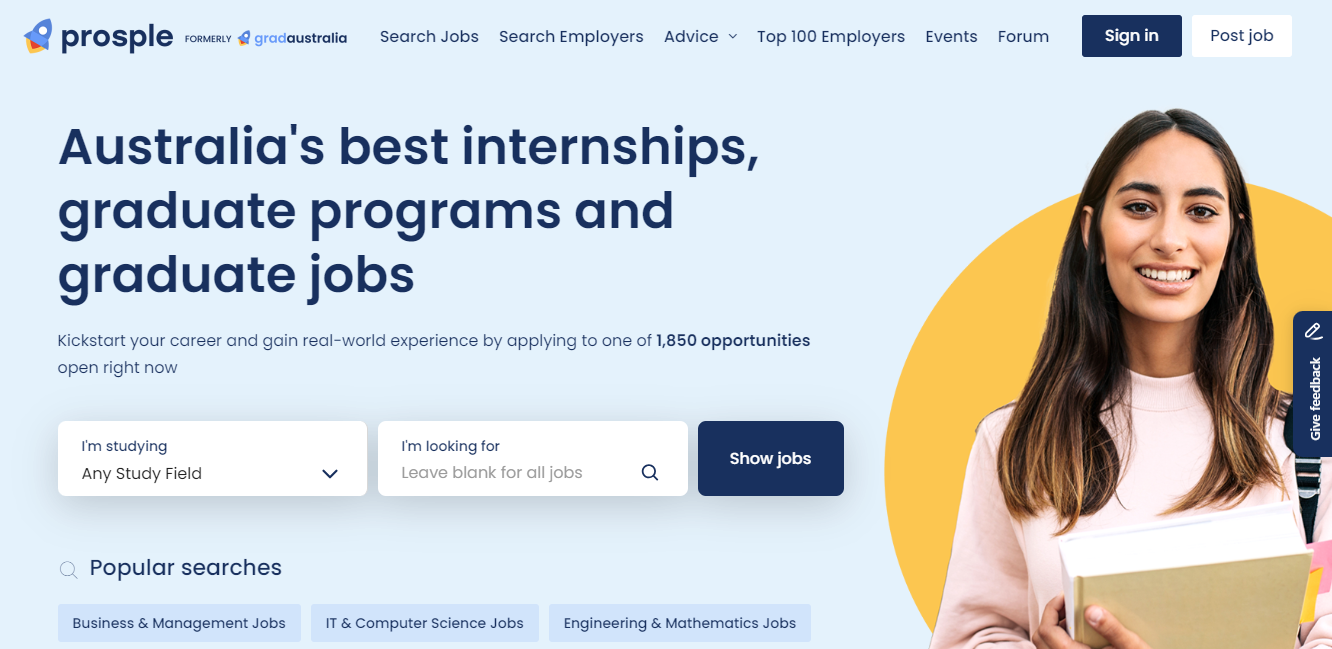10 Career Development Theories: Explained + Examples
Team Prosple
Ever wondered why some people love their jobs while others feel stuck? The truth is, there is no magic formula for career happiness. However, there are powerful career development theories that can help you understand yourself and your options better.
These theories can be numerous and complex. If you don't understand the core ideas, seeing how they apply to your life is hard. This article simplifies things. We will look at the 10 most influential theories for career development and explain their core concepts so you can make the most of them.
What are career development theories?
Career development theories help you understand how people choose, develop, and transition in their careers. They consider factors that influence career choice, stages of development, and the overall career growth process. These different theories can be helpful whether you are just starting out in your career or looking to make a change.
10 foundational career development theories you should know
Now, let's get down to understanding 10 foundational career theories. Remember to take note of the major points of each theory to understand how they apply to your situation.
1. Holland's Theory of Vocational Types

Personality traits define future career choices. This idea is exactly what Holland’s theory of vocational types is based on. Also known as the Holland Codes or RIASEC theory, it proposes that people can be classified into 6 personality types.
- Realistic: You enjoy working with your hands and solving practical problems. Think mechanics, carpenters, or engineers.
- Investigative: You are curious and analytical, drawn to research and figuring things out. Scientists, detectives, and data analysts fit here.
- Artistic: You are creative and expressive. You love self-expression and working with open-ended ideas. Artists, musicians, and writers are good examples.
- Social: You love helping others. You thrive on communication and building relationships, so teachers, counsellors, and social workers are good matches.
- Enterprising: You are a natural leader, persuasive and ambitious. Salespeople, entrepreneurs, and business managers fit this type.
- Conventional: You value order and structure. You enjoy detailed work and following rules. Accountants, administrators, and editors find satisfaction here.
According to this theory, people are a combination of these types, with one or 2 usually being dominant. The ideal career path aligns with your dominant personality type. So, a Realistic person will feel drained in a Social work environment, while a Social person might find a data analysis job unfulfilling.
Many careers can blend elements from different types. For example, a graphic designer (Artistic) might also need to be organized and detail-oriented (Conventional) to meet client deadlines.
2. Super's Developmental Self-Concept Theory
Donald Super developed this theory, which explains how you can form and evolve your perceptions of yourself and your career. According to Super, you go through different stages as you develop your career identities:
- Growth Stage (Birth-14): This is where you start developing basic ideas about yourself and the working world. You might explore different hobbies and activities, but career choices are still far off.
- Exploration Stage (15-24): During adolescence, you actively explore different career options through education, work experiences, and personal interests. Goals and preferences become clearer.
- Establishment Stage (25-44): Now, you enter the workforce and make initial career choices. Successes and challenges you face during this stage will continue to shape your self-concept and how you see yourself fitting into the working world.
- Maintenance Stage (45-64): You work to maintain and advance in your profession. You will reassess your goals and adjust to match changing personal and professional priorities.
- Disengagement Stage (65+): As you approach retirement, your focus shifts. You might explore new hobbies or volunteer work. These life experiences can help you redefine your self-concept in a fulfilling way beyond your traditional career.
Super emphasized that these stages are flexible. You can move through them at your pace and even revisit earlier stages if your interests or circumstances change.
The key takeaway? Your self-concept is a work in progress, and your career path should reflect that. As you learn and grow, your ideal career journey might change, too. This theory encourages you to continue to explore and refine your understanding of yourself.
3. Social Cognitive Career Theory (SCCT)
According to this theory, 2 main things influence your path: you and your environment. Here's what that means:
- Self-Efficacy: SCCT focuses on your "self-efficacy beliefs." This is how confident you feel in your ability to do specific things. If you believe you can handle the challenges of a certain career, you will pursue it.
- Your Interests: They play a big role in shaping your career path. If you naturally gravitate towards activities related to a particular field, you will find that career more fulfilling.
- Your Environment: The world around you shapes your options. Think about things like available jobs, financial resources, and the support you have from family and friends. These environmental factors can limit or expand your career possibilities.
SCCT doesn't say one factor is more important. It is about how these things work together. For instance, you might be interested in becoming a doctor. But you might need to adjust your goals if you have a strong fear of blood (low self-efficacy) or limited access to medical school (environmental barrier).
4. Frank Parsons Trait and Factor Theory

Frank Parsons is considered the "father of vocational guidance". His Trait and Factor Theory is about matching your unique qualities with the demands of different jobs.
Here's the breakdown:
- Your Traits are your strengths, interests, and personality. They can include good communication skills, a passion for problem-solving, or a preference for working independently.
- Job Factors: Every job has specific requirements and offers a certain work environment. For instance, an accountant needs strong math skills and enjoys detail-oriented work, while a graphic designer is creative and will grow in a collaborative environment.
According to Parsons, you will find happiness and success when your traits match the job factors. For instance, imagine you are really good at working with people and helping others. A career in social work will be a great fit because it uses those skills and offers a helping environment.
5. Career Construction Theory
This Mark Savickas theory is built on Super’s developmental self-concept theory. Unlike other theories that tell you to find the perfect fit between your personality and job, Career Construction Theory is more about the story you create.
It focuses on how you, as the main character, give meaning to your work experiences and build your ideal career journey.
3 key perspectives of this theory are:
- Life Themes are the recurring patterns and interests throughout your life. Maybe you have always loved helping others, or you are naturally drawn to creative problem-solving. Identifying these themes helps you connect your past experiences to future career possibilities.
- Career Adaptability is how you adjust and handle challenges in the working world. It could involve decision-making skills, coping with stress, or learning new things. The stronger your adaptability, the more prepared you are to handle unexpected turns in your career journey.
- Vocational Personality: These are your work-related skills, needs, and preferences. Are you detail-oriented and enjoy working independently? Or maybe you love brainstorming ideas. Understanding your vocational personality helps you find work that feels energizing and fulfilling.
According to this theory, your career is yours to build. Your career story keeps evolving as you get new experiences and learn more about yourself. This means you are not locked into one path forever. You can explore different options and rewrite your story as you go.
6. Planned Happenstance Theory
This theory developed by John D. Krumboltz suggests that you can use unexpected events or chance meetings to create opportunities and succeed in your career. It moves away from the traditional view of rigidly planning your career path.
The major components of Krumboltz's theory are:
- Curiosity: Be open to new experiences and different ways of doing things. Explore things that interest you, even if they don’t relate to your goals. You never know where a new skill or connection might take you.
- Persistence: Things don't always go as planned, and that's okay. This theory emphasizes you bounce back from setbacks and use them as learning opportunities. The more persistent you are, the more likely you are to turn unexpected events into something positive for your career.
- Take Action: Don't just wait for chance encounters. This theory emphasizes taking initiative. If something interests you, research it further, network with people in the field, or volunteer your skills. The more you put yourself out there, the more opportunities you create.
Planned Happenstance doesn't mean abandoning your entire career strategy. Nor does it replace other theories, like Holland's types or Super's stages. Instead, it complements them and provides an additional tool: adapting and thriving based on unexpected turns.
7. Self-Determination Theory (SDT)

According to this psychological framework, people are naturally driven to grow and motivated by internal desires, not just external pressures.
You are more satisfied and successful in your career when you feel in control and motivated by your own reasons rather than external rewards or punishments. Major needs that influence your motivation are:
- Autonomy: The feeling of control and choice in your work. You want to feel like you have a say in what you do and how you do it.
- Competence: The desire to develop your skills and feel good about what you can accomplish. Being challenged and learning new things keeps work engaging.
- Relatedness: The need to feel connected to others and valued for your contributions. Having good relationships with colleagues and feeling like your work matters can be very motivating.
When all 3 needs are met, you experience what SDT calls "intrinsic motivation." This is when you are truly engaged in your work and find it fulfilling. Remember, SDT isn't about finding a perfect utopia of a job. Even if your job doesn't tick all the boxes, you can still find ways to boost your motivation.
8. Roe’s Personality Theory
Anne Roe's career development theory suggests that your childhood experiences, especially your interactions with parents, can influence the work you find fulfilling. She identified 3 main types of parent-child relationships:
- Emotional Concentration: Parents are very focused on you, either overprotective or demanding a lot.
- Avoidance: Parents are emotionally distant, either rejecting or neglecting your needs.
- Acceptance: Parents provide a balanced approach, either casually accepting or lovingly supportive.
Based on these styles, Roe proposed different "needs" that develop in children and the corresponding career paths that satisfy them:
- Need for Independence: If your parents raised you with a focus on self-reliance (low emotional concentration or acceptance), you might be drawn to careers that let you work independently, like science or engineering.
- Need for Achievement: High parental expectations (emotional concentration) could result in a strong need for accomplishment. Careers in business or law are a good fit.
- Need for Affiliation: Warm and supportive parents (accepting) can develop a desire for connection. Careers in social work or education could be fulfilling.
- Need for Service: This need could arise from a childhood where you felt emotionally neglected (avoidance). Helping others through careers like nursing or social work might be appealing.
- Need for Power: High expectations or a rejecting parenting style (emotional concentration) could generate a desire for control. Management or leadership roles might be a good fit.
- Need for Organization: If your parents valued order and structure (low emotional concentration or acceptance), you find careers that involve organization and detail, like accounting or administration, satisfying.
9. Career Adaptability Theory
Career Adaptability Theory proposes that you need to develop the skills to adapt and thrive in an ever-changing work environment for a successful career. There are 4 key areas:
- Career Concern: This is about your awareness of your future career goals and the steps you must take to achieve them.
- Career Control: This refers to your sense of agency in shaping your career path. Do you feel confident in making decisions about your work? Can you take the initiative and advocate for yourself?
- Career Curiosity: A curious mind is a big asset in today's job market. Are you open to exploring new ideas and opportunities? Do you enjoy learning and expanding your skillset?
- Career Confidence: This is about believing in yourself and your abilities. Do you feel confident in your skills and knowledge? Can you handle challenges and setbacks with a positive attitude?
With these skills, you become more adaptable and resilient in your career. Plus, this theory acknowledges that your career path might not be a straight line. There will be unexpected turns and challenges. But when you are adaptable, you can transform them into opportunities.
10. Dualistic Model of Passion

Everyone talks about finding your passion, but what if passion isn't so simple? Dualistic Model of Passion suggests there are actually 2 types of passion:
- Harmonious Passion: This passion type energizes and motivates you. You enjoy the work itself, find it challenging but manageable, and it matches your values and goals. Think about someone who loves coding and gets lost in the creative problem-solving process.
- Obsessive Passion: This passion can initially feel intense, but it is not always healthy. You may sacrifice your well-being or neglect other parts of your life for work. Imagine someone constantly stressed and anxious about work performance, even if they love the field.
So, how do you know which type of passion you are experiencing? Here are some clues:
- Enjoyment vs. Pressure: Harmonious passion feels enjoyable. Obsessive passion can be full of pressure and anxiety.
- Balance vs. Fixation: Harmonious passion allows for a balanced life. Obsessive passion can become all-consuming.
- Growth vs. Stagnation: Harmonious passion encourages learning and growth. Obsessive passion can cause a fixed mindset and resistance to change.
This theory encourages you to analyse your passion nature. If it is harmonious, great. But if it is leaning towards obsessive, find a healthier balance.
The student's advantage: How Prosple makes finding a job easier

Prosple’s advanced job board is designed to help you land your first post-graduation job or internship. We have a large collection of graduate jobs, so you will have many opportunities to browse through. You can apply to as many jobs and internships as you want without any charges.
Let’s look at Prosple’s key features.
- Prosple lists the most recent job openings from various employers across Australia. This ensures you are getting a good shot at the latest opportunities in your field.
- Our Day in the Life Series gives you a glimpse into different careers. This can be incredibly helpful in ensuring you are pursuing the right path and gives you a realistic idea of what to expect.
- Prosple offers a modern, easy-to-navigate platform. With advanced filters, you can narrow your search based on specific criteria like industry, location, job type (full-time, internship), and salary.
- The platform’s notification system updates you on new job postings that match your interests. You can set up alerts to be emailed or received directly on the platform, ensuring you're always in the loop.
- We also provide valuable resources like interview tips, resume-building guides, and career advice articles. This one-stop-shop approach can help you with everything you need to prepare for your job search and stand out to employers.
- The “Work Rights” feature is a real time-saver for international students. Our platform considers your visa status and filters out internship opportunities you wouldn't be eligible for. This removes the frustration of applying for jobs you can't legally take and lets you focus on the positions that are a perfect fit.
Conclusion
The more you get to know yourself, the easier it is to explore different career paths. Career development theories empower you to ask the right questions. They don't tell you exactly what to do but provide a framework for self-discovery. Experiment with these theories to find hidden talents and passions you never knew you had.
Prosple is a free platform to help recent graduates like you launch their careers. With a wide range of graduate jobs and internships, we can help you find the perfect place to put your knowledge and skills to the test. Register now for free and see how we can help with your job search.